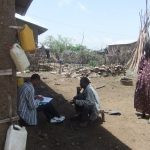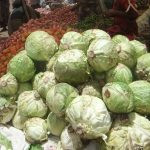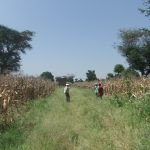In 2019, the EAT-Lancet Commission proposed a planetary health diet (PHD)—optimal for the planet and its people. Yet concerns have arisen regarding its universality and potential tradeoffs and conflicts. This Voices asks: is a PHD realistic, where are the remaining knowledge gaps and opportunities, and where do we go from here? Read more. Source: IFPRI Ethiopia: Ethiopia Strategy Support Program
Local empowerment and irrigation devolution in Ethiopia
This paper investigates the effect of devolved irrigation water management systems and complementary irrigation technologies on collective empowerment in Ethiopia. We find that households’ monetary, in-kind and labour contributions for irrigation water provision and appropriation are more common in farmer-managed gravity irrigation schemes compared with farmer-managed pump systems and jointly managed schemes. The most frequent […] Source: IFPRI Ethiopia: Ethiopia Strategy Support Program
Ethiopia: The impact of COVID-19 and food system responses
In Ethiopia, the COVID-19 pandemic has affected livelihoods and caused declines in the gross domestic product (GDP) of the agrifood system (AFS) as well as in total GDP. CGIAR has been working with partners in the country to inform policy responses, focusing on the pandemic’s effects on rural households, the delivery of health services, and […] Source: IFPRI Ethiopia: Ethiopia Strategy Support Program
IFPRI Malawi Monthly Maize Market Report – August 2021
The Monthly Maize Market Report was developed by researchers at IFPRI Malawi with the goal of providing clear and accurate information on the variation of maize prices in selected markets throughout Malawi. The reports are intended as a resource for th... Source: IFPRI Malawi: Malawi Strategy Support Program
Introduction – Multi-stakeholder forums and the promise of more equitable and sustainable land and resource use: Perspectives from Brazil, Ethiopia, Indonesia, and Peru
Multi-stakeholder forums (MSFs) have become a popular mechanism in global development and conservation circles, given the urgency to find transformative approaches to address climate change and unsustainable development. In this current context, it is important to take stock of MSFs, an example of a participatory mechanism that is emerging as a new 'solution'. The papers […] Source: IFPRI Ethiopia: Ethiopia Strategy Support Program
- « Previous Page
- 1
- …
- 115
- 116
- 117
- 118
- 119
- …
- 200
- Next Page »




